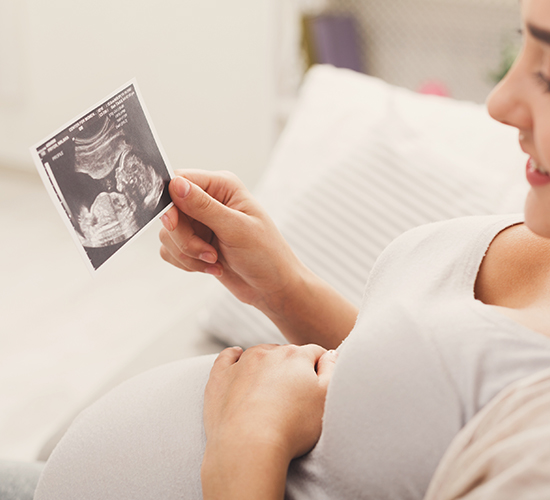The Role Of Diagnostics In Fertility And Pregnancy

Clinicians and doctors are now able to help couples plan pregnancies and child birth effectively and efficiently with advanced screening and diagnostic tests that are available today. Since every couple would long for a healthy child while conceiving or while carrying the child to term, it is likely that doubts and concerns will arise. These concerns could be with regards to infertility, preeclampsia and Downs syndrome. These condition can now be predicted, diagnosed as well as managed with the advancements in diagnostic technology .
Sensitive and reliable diagnostic information throughout pregnancy is imperative to ensure the health of the baby. Fortunately, innovation in the field of technology has helped yield an array of tests that can help preempt and manage complications better throughout the pregnancy term.
Looking At Fertility Issues With A Positive Lens
1 in 6 couples all over the world are plagued by fertility issues[1], and while many of these issues are manageable and often even treatable, they do cause a significant amount of financial and emotional stress to the couple. The key is to understand factors that impact fertility and the role that both men and women have when it comes to conception[2]. Once these factors are well understood, it becomes easier to fight challenges and possible fertility problems that may arise along the way.
Factors That Impact Fertility
As couples have begun to wait longer to have children, the decline of the ovarian follicle pool is one of the major causes of infertility[3]. A girl child is born with about two million eggs, and the number of eggs decline in both quantity and quality as a woman ages[7].
An Ovarian Reserve Test can come in handy to give insight into the remaining eggs and number of fertile years a woman has left. This information can prove to be extremely valuable for couples who may be looking to start a family in the future[4].
The Tactical Approach To Planning A Baby
1. AMH Testing
Anti-Müllerian hormone (AMH) is secreted in the growing follicles within the ovaries and can serve to be an extremely beneficial marker of the ovarian reserve of a woman.[4],[5],[6]
An AMH test is a simple blood test that gives quick and accurate measures of AMH levels in the woman’s body. When compared to tests like antral follicle count (AFC), AMH results are automated and don’t rely on human judgment. This test can be undertaken at any time of the menstrual cycle and helps allows the doctor to optimize treatment for conception while simultaneously minimizing the chance of severe events like Ovarian Hyper Stimulation Syndrome (OHSS). [8],[9]
2. Preeclampsia Testing
About 8.5 million women all over the world are diagnosed with Preeclampsia every year [10], which amounts to roughly about 1 in every 20 pregnancies [11]. It has been reported that 76,000 pregnant women die from preeclampsia and related hypertensive disorders every year [12]. A diagnostic test, has been developed to determine if a woman with suspected preeclampsia will or will not develop the condition[13].
3. Down Syndrome Testing
One out of every four Down syndrome cases in pregnant women is not diagnosed by the traditional method[14]. A new non-invasive DNA-based blood is shown to be more than 99% effective to determine cases of Down syndrome and has a false-positive rate of less than 0.1%. This test can be administered as early as 10 weeks in pregnancy [15]. There are also test like Noninvasive Prenatal Testing (NIPT)which help you to detect any genetic disorder in your kid.
With the advent of superior technology and accurate test results, doctors and healthcare professionals are now empowered with the power of knowing that can help them make informed clinical decisions.
References:
- European Society of Human Reproduction and Embryology. https://www.eshre.eu/Press-Room/Resources.aspx (Last accessed March 2018)
- RESOLVE. Infertility FAQ. https://resolve.org/infertility-101/infertility-faq/ (Last accessed March 2017)
- CDC. ART National Summary Report 2015 (October 2017). https://www.cdc.gov/art/pdf/2015-report/ART-2015-National-Summary-Report.pdf (Last accessed February 2018).
- Jirge PR. J Hum Reprod Sci. 2011;4(3):108-113.
- Maheshwari A et al. Hum Reprod. 2006;21(11):2729-2735.
- Grynnerup AG et al. Curr Opin Obstet Gynecol. 2014;26(3):162-167.
- Wallace WH et al. PLoS ONE. 2010;5(1):e8772.
- Andersen AN et al. Fertil Steril 2016, “Individualized versus conventional ovarian stimulation for in vitro fertilization: a multicenter, randomized, controlled, assessor-blinded, phase 3 noninferiority trial” (open access)
- Evidence-based Stimulation Trial With Human rFSH in Europe and Rest of World 2 (ESTHER-2). https://clinicaltrials.gov/ct2/show/NCT01956123. (Last accessed December 2016)
- Telang MA et al. Placenta. 2013;34(1):2-8.
- Verlohren S et al. Am J Obstet Gynecol. 2010;202(2):161.e1-161.e11.
- Preeclampsia Foundation. Preeclampsia and Maternal Mortality: a Global Burden. https://preeclampsia.org/the-news/legislative-advocacy/preeclampsia-and-maternal-mortality-a-global-burden (Last accessed March 2018)
- Vatish M et al. Ultrasound Obstet Gynecol 2016, “The sFlt-1/PlGF ratio test in preeclampsia: an economic assessment for the UK” (open access)
- Sillence KA et al. Non-Invasive Screening Tools for Down’s Syndrome: A Review. Diagnostics. 2013;3(2):291-314.
- Norton ME et al. N Engl J Med. 2015;372(17):1589-1597